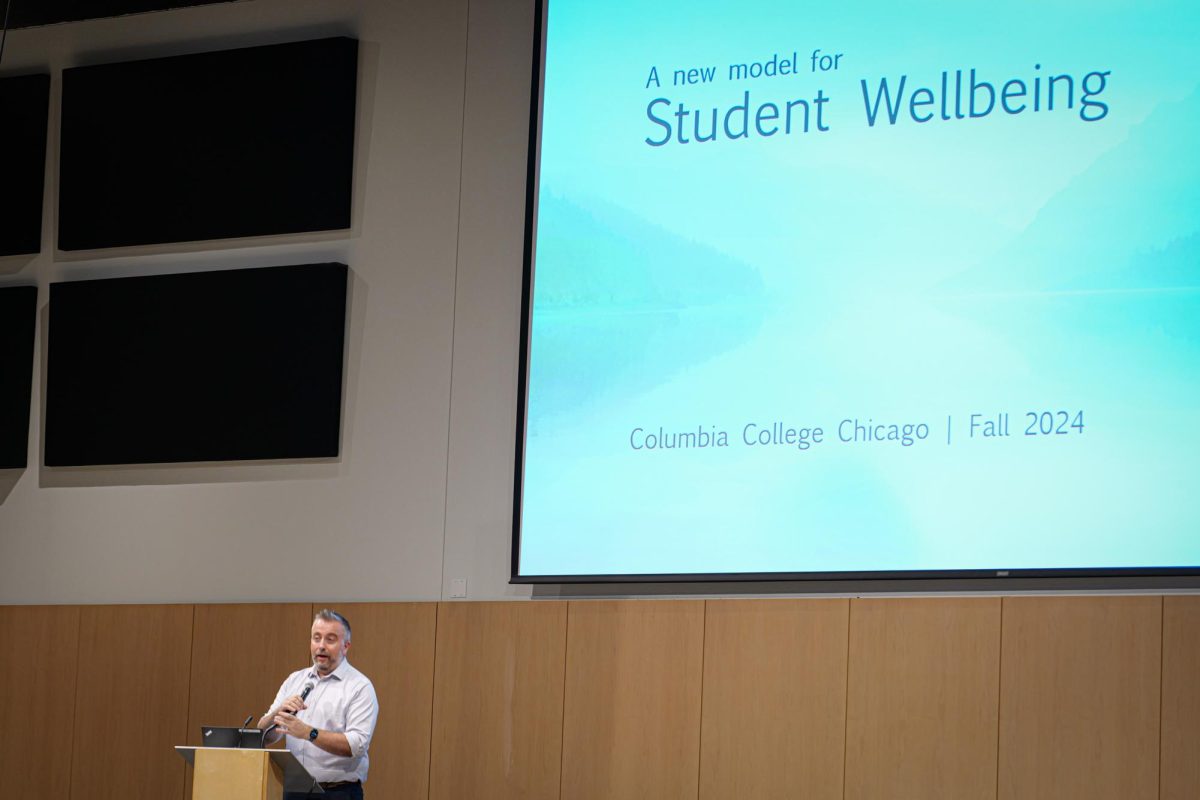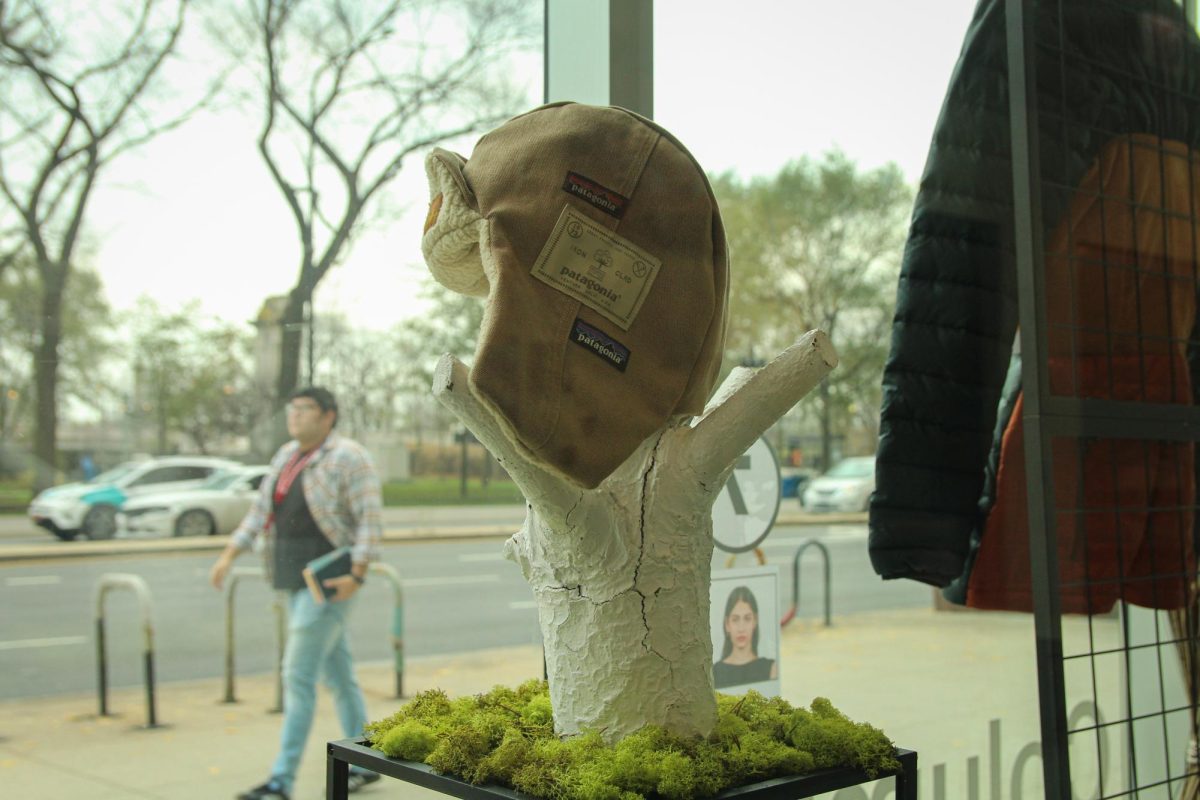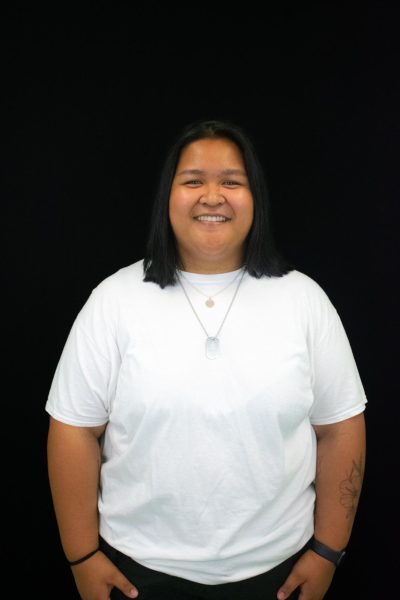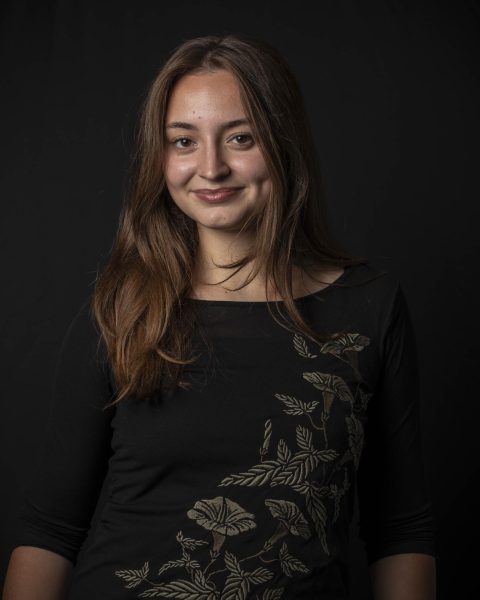Columbia closed its student Health Center and will create a new Center of Student Wellbeing that will merge the previous Counseling Services and Student Relations offices into a single space.
The Health Center, which provided outpatient clinical evaluation, treatment of minor illnesses and injuries and triage or referral for more serious illnesses and injuries, closed on Friday, Aug. 16 after nearly two decades. Columbia already closed its on-campus employee health clinic at the end of 2023 to address the financial deficit, which grew to $38 million during the historic part-time faculty strike.
The college announced the closing at the All College Retreat and removed references to the center from the website. Instead, students were directed to create a profile for TimelyCare, the virtual health care provider. The Chronicle previously reported that TimelyCare would supplement Columbia’s in-person counseling services.
“The Student Health Center, Counseling Services and Student Relations in those individual, standalone offices do not exist anymore,” Doug Eck told faculty on Friday, Aug. 16 at their collegewide meeting.
The new Center of Student Wellbeing will offer both long-term mental health care and rapid interventions, as well as new assets such as a decompression room and a mental health consultation line.
The former Counseling Services office, previously located on the fifth floor of 916 S. Wabash, will share a new space on the third floor of 623 S. Wabash with the former Student Relations office. The move is expected to make most of the major student services available on one floor and more accessible to students.
“The counseling service that was right over there at 916 and the student relations that was at 623 are together and you could think of us as the mental health hub,” said Britt Hodgdon, the director of Counseling Services and co-director of the new Center of Wellbeing.
The new center will open on the first day of class on Sept. 3, Eck said.
Mental health needs will be addressed through the Center for Student Wellbeing and through TimelyCare, the virtual provider.
TimelyCare will offer on demand mental health support, licensed counseling, self care resources and psychiatric services to students, said Abby Waldron, a senior customer success manager with TimelyCare.
“There’s no visit fee to use these services, and that way, we can make sure everyone is able to use them if they need to,” said Waldron. Students can login to TimelyCare with their Columbia email address and begin using their services. When logging in, students do not have to enter their health insurance information. Waldron said the system requires standard information like name, address and date of birth.
Students can access TimelyCare both through their mobile app and website link.
“The college knows that that is sad,” Hodgdon said at the faculty meeting. When it tried to replace the Health Center with a different option, it could not “at any price point that the college could afford.”
The Health Center had been located on the fifth floor of 916 S. Wabash. Students pay a Student Health Center fee each semester, which helped fund the Student Health Center’s services. There were no additional costs to see a doctor or nurse practitioner except for vaccines.
Tiana Hill, director of Strategy and Engagement at the Center of Wellbeing, will be the other co-director.
“I want to honor the fact that students are having a hard time right now and that mental health is not in a great place, and that we want to show up for them and show due diligence for doing meaningful work,” said Hodgdon, who was hired in 2023 to direct Columbia’s Counseling Services as the Chronicle previously reported. “How do we build something that we are proud of as clinicians to do and match the ethics of our field?”
Peara Savath, a senior film major, has not used any of the services but said combining the programs will help students in need.
“I feel like it’s more convenient because it’s a more close-knit community if it’s closer to students’ needs in one area, compared to the very separate parts on campus,” he said.
Other students, like senior graphic design major Cadence Uzarraga, said that moving the counseling services to a busier building will help spread the word about student services.
“I think it’ll be more beneficial, at least, in getting the word out there that this is available for students. I feel like everyone has a class at 623 so that might be helpful,” Uzarraga said. “I know a lot more people know about the counseling services rather than the other one, so it might be good for getting exposure about the other one.”
Before the merger, Columbia’s counseling services followed a traditional therapy model that offered 12 individual counseling sessions per academic year and focused on student mental health. The previous student relations services focused on assisting students with interpersonal conflicts, served as a line of communication between student and faculty and provided students with outside referrals for things like Medicaid, therapists or psychiatrists. The Counseling Services office was also able to refer students to different resources.
Hodgdon said the new Center of Wellbeing will offer community building, urban hiking and trauma coping groups for students to join.
“We’re gonna be doing a trauma coping group, so it’s not trauma processing,” Hodgdon said, “We’re talking about how to live with it, breathing exercises, grounding, dealing with overwhelm, dissociation, that kind of thing.”
The Student Relations office helped students with financial concerns, housing and food insecurities until a new role was created due to the intense workload on student relations.
“Essentially, anything that a student has questions with or concerns here at the college, whether it be academic or otherwise, I’m kind of the catch all or kind of triage person,” said Kelli Collins, director of Student Assistance and Community Standards, which is a solution-based model for students’ lifestyle difficulties and behavioral troubles.
Student Assistance and Community Standards is separate from the new Center of Student Wellbeing but historically worked closely with Counseling Services and Student Relations since oftentimes lifestyle struggles will impact a students mental health and wellbeing. Collins will continue to work with the Center of Student Wellbeing and stay connected to the “direct line” between student success and mental wellbeing, she said.
“With any change comes a bit of angst,” Collins said. “We have the wellbeing of students in mind, if they can work with us and maybe a bit of patience while we are making sure that this new model is indeed one that we believe will work well for students, that would be helpful.”
Hodgdon said the new center will have a “menu of options” for student wellbeing, including long term counseling sessions, offered both in-person and virtually through the new telehealth program TimelyCare. They will also offer rapid intervention sessions, a concept implemented by the previous counseling services as a way to see students who did not need long term therapy.
Acute care services will also be offered at the new center. Acute care, different from the previous crisis care services, will assist students in connecting with outside healthcare or other wellness providers. It is designed to assist students with difficult processes needed for healthcare services and to help them each step of the way.
“What we’re trying to do is get to the people who need it the most and be as flexible as we can for them,” Hodgdon said.
Although the center is limited with resources in terms of staff, the TimelyCare program and new consultation line will maximize the capacity at which they can help students, according to Hill. TimelyCare will provide more students with therapists without overbooking the in-person counselors.
The consultation line will serve as a mental health advice and support service. Anyone connected to the Columbia community, including relatives, will be able to call the consultation line with concerns or questions regarding the mental health of Columbia students. The consultant will be able to coach people on mental health wellbeing strategies, discuss how to approach someone with mental health issues and provide wellness checks if the party is concerned about a student. The purpose is to “make better mental health advocates out of the larger community where people need that” according to Hodgdon.
A new decompression space will serve as “the first line of intervention,” according to Hill. It will be equipped with sensory gadgets, mental health therapy books, coloring books and noise-canceling headphones. There will be seating areas, yoga matts and more opportunities to destress. The decompression space will be open to all students as a space to relax and feel comfortable.
The difference between the decompression space and other sensory spaces on campus is that it is designed by a therapist with mental wellbeing in mind. They hope the safe space will be “student-owned” and help them feel comfortable connecting with peers and the Student Wellbeing staff. The room will also include resources such as Narcan testing kits, healthy sex kits and information on mental and personal health services.
“We want to make this a health and safety environment,” Hill said. “We are the Center for Student Wellbeing so making sure that the resources we are providing really holds up to that.”
Copy edited by Trinity Balboa











